This year's Pride Festival focuses on trans issues and takes up the cudgels on behalf of the trans community. "All cultural aspects of the community and its demands and rights will be included," explains spokesperson François Massoz-Fouillien, who gave us a number of tips for particular activities in an extensive programme.
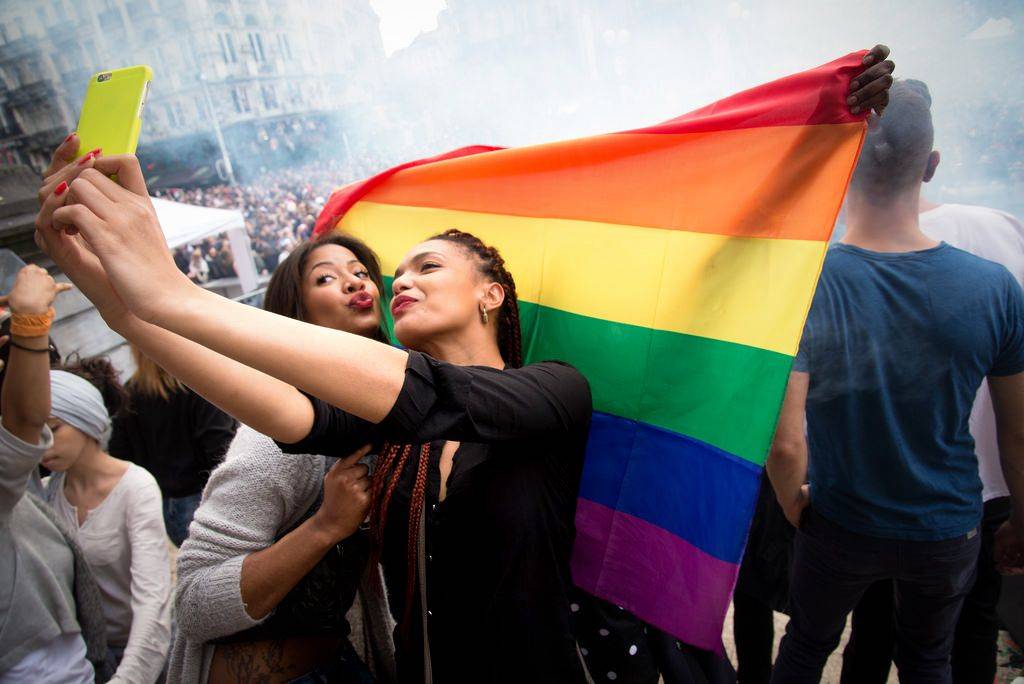
Pride Festival: somewhere over the rainbow
FILM
"In the press, the Pride Festival is mainly reported as a series of festivities, with particular emphasis on the colourful parade. But we aim to stand up for the human rights of the LGBTQI community in every field and to show where there are still problems, and specifically in Belgium. This year, the theme we have chosen is Trans*, a term that embraces much more than the medical term transsexuality. Trans* is also about transgender, trans identity, and openness in general. In 2007, the law on transsexuality came into effect; it stipulates that someone who wants to change their name is obliged to submit a report from a psychiatrist and an endocrinologist, stating that the individual in question is psychologically disturbed. Someone who wants to have their gender changed on their identity card must produce proof of sterilisation. Many international organisations have condemned that provision. And we, too, see the law as a serious infringement of human rights. We want to emphatically remind people that everyone has the right to be exactly what he, she, or it wants to be, which is why the Pride Festival has launched the "I decide!/Ik beslis!/Je décide!" campaign. For the Cinematek, Fred Arends has put together a programme, 'Kino-Trans' (30 April to 21 May), that is a festival in itself, presenting a wide range of films showing how cinema has depicted gender questions and trans identities. The characters in Hedwig and the Angry Inch, for example, or in Transamerica or Orlando vary enormously. We particularly want to stress that diversity."
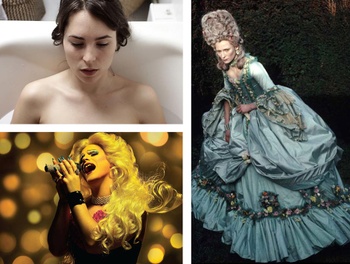
EXHIBITION
"The French photographer Quentin Houdas has had his work published in magazines such as L'Obs, Télérama, and Le Télégramme. At the RainbowHouse, he is exhibiting his series of portraits, 'Queer: Sexualités alternatives et transidentité' (29 April to 30 June). The individuals he photographs don't fit in at all with the usual categories imposed by our society. The portraits present an image of how the world might look if those strict norms weren't in place. Quotations from the people portrayed such as 'Je préfère être détesté plutôt qu'ignoré' ('I prefer being hated to being ignored') or 'Il paraît que je suis marginal' ('I seem to be marginal') accompany the photographs. There is another interesting exhibition at the Flemish-Moroccan cultural centre, Daarkom, in which the Pakistani photographer Samra Habib, who lives in Canada, is exhibiting 'Just Me & God' (10 to 14 May), honest portraits of homosexual Muslims. Her project reminds us that there doesn't have to be any conflict at all between orientation and any faith. All too often, we forget that it's not dogmas but people that count: they do live their faith, after all. Habib works internationally and will also take photographs for her series in Brussels, one of the most diverse cities in the world. There's a third exhibition at Tels Quels: Thibaut Delsemme's 'Porn This Way' (to 29 May). He makes fun of openly homophobic personalities – from heads of state to religious leaders to pop icons – by reassembling their portraits on the basis of pornographic images. It is criticism that is not out of place, as, between them, the ideas and statements of those authority figures may influence millions of people."
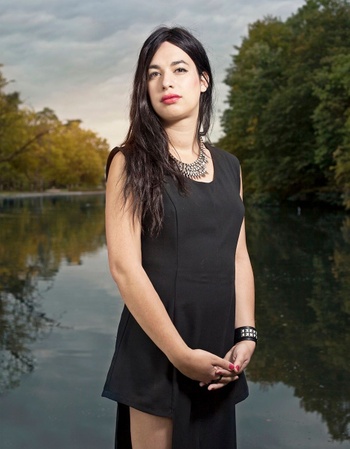
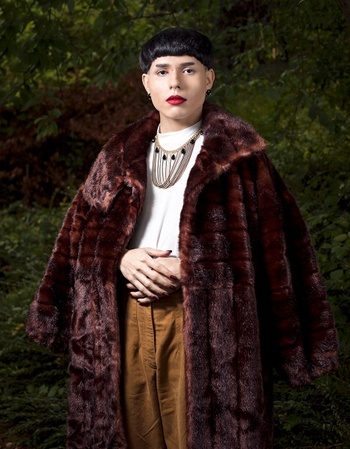
THEATRE
"In the context of this year's Trans* theme, we have also programmed a show, La Nature contre-nature (tout contre), by Josie, a duo made up of the researcher Leonor Palmeira and the actress Camille Pier (9 May, Les Riches Claires). It is a one-woman show that introduces the audience to a load of findings from noteworthy biological research reports on gender. The studies in question are about animals, however, not humans. Homosexuality among animals is a particular focus. Science, humour, and song are combined in a very accessible, at times hilarious and explosive production that makes one realise that, in animals, gender doesn't play such an important role at all as among people. La Nature contre-nature (tout contre) attracted big audiences in Liège and we expect it to sell out in Brussels too. La théorie du Y (2 to 7 May, Les Riches Claires) also promises to be an excellent and informative experience; it was written by a young Belgian, Caroline Taillet, with the aim of tackling prejudices about bisexuality. Four characters look at whether it's possible to love someone without gender being central."
TALKS AND WORKSHOPS
"To what extent is public perception shaped by the presentation of trans identities in television series such as Orange Is the New Black or Hit & Miss, in films such as The Adventures of Priscilla, Queen of the Desert, and in pop culture in general? Karine Espineira, someone with experience who is very knowledgeable about the representation of trans people in the media looks at the question in a talk on 'Penser le sujet trans comme sujet et figure de la pop culture' (3 May, De Markten). When we talk about Trans*, we're talking above all about how society determines the position and behaviour of men and of women. This is a particularly important question, one that affects everyone: we are constantly squeezed to fit an obsessive social model that defines the role of gender. Those unwritten rules lead to laws such as the controversial 2007 law on transsexuality. We want to get away from that obligatory narrow-mindedness and recognise everyone in society. So this issue is not just about the interests of a minority group. In addition to the talk, we are organising workshops whose titles tell you exactly what they are about – 'Trans* pour les nulles' ('Trans for Dummies') (2 May, Lollepot), for example, and 'M/ V/ X – Why Even Bother?' (11 May, 16 boulevard de Waterloolaan). We will also be looking at other issues, such as Judaism and LGBTQI concerns (5 May, Lollepot), and we are organising a speed-debating session under the heading, 'La politique doit-elle faire son coming out?' (10 May, De Markten)."
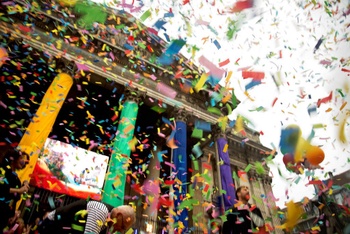
"This year's Pride Festival, as usual, also includes a whole range of festive events, with the Pride parade as the high point (14 May). Among others, I'm particularly looking forward to the 'Out! Village' party, a collaborative project with the Irisfeest/Fête de l'Iris 2016 (Brussels Region Festival, 8 May). Starting at noon, on the square in front of the Central railway station, there will be a succession of musicians, DJs, performances, and surprise acts, with the idea of getting everyone dancing. There will be something for everyone: from Balkan beat to rock to the Brussels Gay Sports Choir. People come to the Pride every year from every corner of Belgium and from abroad. Which is a splendid gesture as, despite the violence and the problems that particular people face, in Belgium there is a powerful bond between people – and certainly not just LGBTQI individuals – who think it's important that everyone can and may be themselves. The day that that will actually be everyday reality, we will no longer need this festival of openness, tolerance, and freedom. So the Pride remains an event with a strongly political side to it. Every year, we work intensively with organisations in Wallonia and Flanders. This year there will be another parade in Ghent city centre (20 May), commemorating the homophobic murder of Ihsane Jarfi in 2012. Although our laws in this area are quite progressive, there is still a big difference with what actually goes on inside people's heads and what happens on the streets. Society isn't nearly as tolerant as we may think. Sadly, there is still a lot of work to be done."
PRIDE FESTIVAL
27/4 > 28/5, various locations, www.rainbowhouse.be
Read more about: Events & Festivals
Fijn dat je wil reageren. Wie reageert, gaat akkoord met onze huisregels. Hoe reageren via Disqus? Een woordje uitleg.